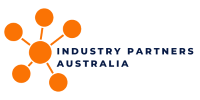A purposeful team...7 features of a high performance team!
At Shape Consulting our purpose is to help our clients realise their potential through making incremental and sustainable improvements.
Time and time again, as we partner with our clients to co-create simple solutions to complex challenges, we identify teams as being one of the most critical levers for improving organisational performance.
“more teams fail through lack of purpose than lack of talent” (Billy Sunday, 1862-1935)
While not a new one, this quote easily sums up the inherent challenge that many teams are grappling with – one that we often reflect on with our clients. We know that today’s team members are smart, educated, autonomous and capable of driving organisational success – and yet these qualities alone are not necessarily leading to performance. So why is this??
What we have learned is that it is essential for teams to engage in regular conversation beyond what it is they have been tasked to do (the talent), to reflect, engage and align around why they are here to do what they do (the purpose).
We have put together a list of 7 essential features of purposeful and high performing teams:
1. They have a visible and engaged sponsor
No teams perform in isolation. Purposeful teams engage in regular conversations with their team sponsor around its purpose and the role they have been tasked to perform. While not being a part of the team, the sponsor walks the journey alongside the team and provides regular input to ensure that the work of the team aligns to the organisations’ goals.
2. They know what they’re there for
Purposeful teams personally connect to their purpose and understand the role they play in the organisations’ big picture. The team spends time gaining an appreciation of their stakeholders’ needs and wants, and the importance of the team’s performance in contributing to broader organisation goals.
3. They’re up for a challenge
Purposeful teams are aware of the behaviours that are helping and hindering relationships and their performance and engage in open conversations to address any hitches as they arise. These conversations focus on both individual behaviours and those of the group as a whole. Members of the team know that this requires consistent effort and actively take on their role as feedback provider and receiver.
4. They can see the pathway forward
Purposeful teams know where they are going and envision the future state they are working towards. The team work together to craft their vision ensuring at all times that it aligns to the needs of the organisation and their stakeholders.
5. The team is committed
Purposeful teams commit to milestones and actions required to achieve their vision. Actions and tasks are considered on individual work styles to fully leverage different strengths of team members, to ensure the talent of the team is fully harnessed.
6. They are always learning
Purposeful teams regularly review progress made against action plans and behaviours the team has committed to. This allows the team to recognise changes that need to be made and re-energise and refocus around the team purpose and the role they need to perform.
7. Sustainability is important to them
Purposeful teams make a concerted effort to sustain their effectiveness and engagement. Team members reflect on the team development, celebrate their successes and identify their next chapter to sustain momentum into the future.
Do you have a Purposeful Team? What lessons have you learned about what it takes to create a high performance team? Share your thoughts below…
.png?width=190&name=IPA%20Logo%20Transparent%20(Hi-Res).png)






